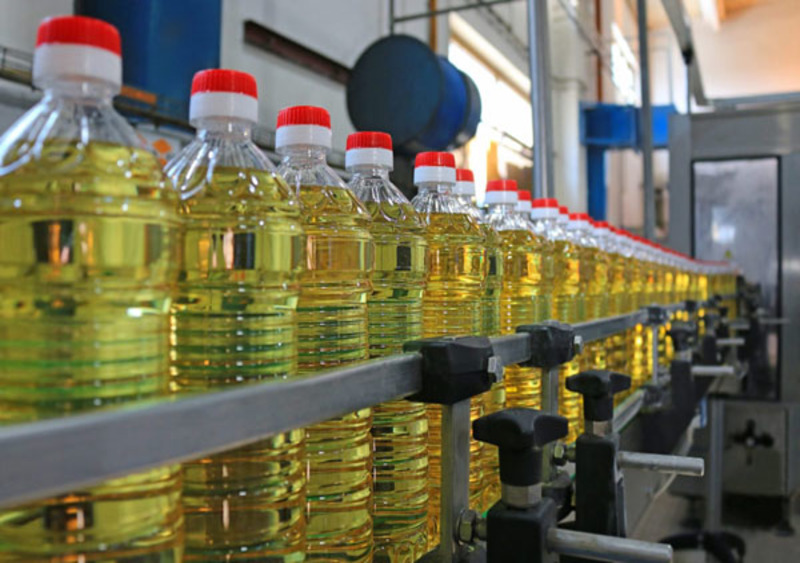Sri Lanka’s edible oil market (coconut and palm oil) is about to crash following the import restrictions imposed by the government after the detection of Aflatoxin, a carcinogenic substance, triggering a severe shortage due to political and bureaucratic bungling, industry leaders warned.
Local edible oil importers and manufacturers have been knocked out in recent weeks due to a series of events: the banning of palm oil importation in a bid to promote the coconut industry, detection of aflatoxins in imported coconut oil, importation of coconut kernel chips, issuing license for palm oil imports, and banning of oil palm cultivation.
This was a result of those ad hoc decisions taken by top ministers and senior officials without any knowledge in haste on the directives of the top echelon of the country’s governance, representatives of edible oil associations and industry stakeholders pointed out.
The present crisis and confusion in the industry has been brought to the notice by those representatives and industry stakeholders at a meeting with Ministers Bandula Gunawardena, Ramesh Pathirana and Lasantha Alagiyawanne recently.
They noted that officials of the Sri Lanka Customs, Finance Ministry and other relevant institutions are used to implementing the regulations and following procedures in a selective manner when providing their services to various parties in the industry.
Citing an example, they pointed out that the relevant authorities took nine days to clear a 1450 tonne shipment of edible oil brought down to the country two weeks ago. Usually, such a shipment could be cleared from the port within four days.
They also noted that the demurrage that should be paid by importers for the delay in clearance is still to be estimated.
It has been revealed that at least five small and medium scale importers have already moved out from the importation of coconut oil imports as a direct result of the propaganda campaign carried out by a few so called national and local businessmen who capitalised on the Aflatoxin issue.
Under this set up of improper and unstable import and export policy, coconut oil producers in Indonesia, Malaysia and the Philippines are reluctant to export oil to Sri Lanka.
When inquired into this irregular process, an expert in international trade had this to say.
# Import of edible oil into Sri Lanka is a complex process.
# 90-day credit period is now offered when opening letters of credit In Sri Lanka for the importation of coconut oil.
# Therefore, exporters will have to export oil under 105-day credit as a whole.
# Without LCs, not a single exporter is willing to export oil.
# Most serious matter was the present non-acceptance of Sri Lanka LCs by many banks in South East Asia.
# An interest of 2.3 percent is levied when discounting LCs in the open market.
Non-acceptance of Sri Lanka LCs?
Thereafter, the importers have to wait under severe tension and stress, till the issuing of reports by the Sri Lanka Standards Institute (SLSI) and the Health Ministry’s Food Safety Unit after testing of samples taken from imported containers of oil in their laboratories although those stocks are already being confirmed in another local or foreign laboratory.
Customs officials are not clearing the oil stocks brought down for ships in containers or tankers. Containers can be kept at the port but oil tankers cannot be kept in waiting as it has to sail worldwide according to a time table, he said, adding that the delay in the clearance of oil shipments and tankers is the main reason for the decline in imports.
Sri Lanka is one of the countries which had imported 220,000 tonnes of palm oil into the island, but now the government has given priority to coconut oil imports. No one in the world can supply to meet such a demand, importers of edible oil claimed.
As the country is exporting coconut oil especially to Europe, there will be severe shortage in coconut oil in the coming months and the price in the world market is likely to increase rapidly, they warned.
The price of a tonne of crude coconut oil in the international market in March was USD 1485 and it had been increased to USD 1680 in April and USD 1800 in May. It is expected to increase further in June up to USD 1900.
In order to tackle this issue, action should be taken to encourage coconut oil imports through palm oil and coconut oil refiners in the island and issue licenses to import crude palm oil equivalent to 50 percent of the quantity of coconut oil imports into the country, they added.




















